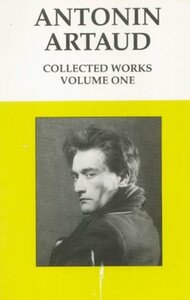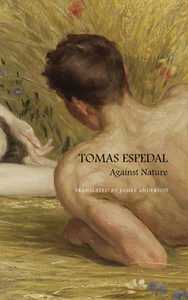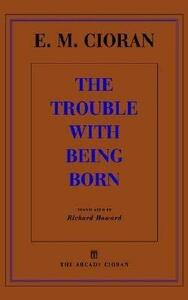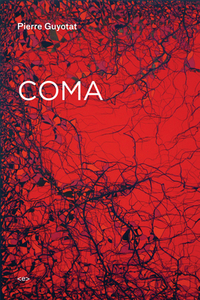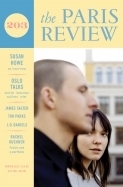Take a photo of a barcode or cover
screen_memory's Reviews (234)
It becomes immediately apparent that Artaud was not one who was situated at the fringes of all things--of society, of his associations, of his self--but one who had breached the borders and
became utterly lost within the dangerous territory that lay beyond.
His severe mental illness seems evident in the bizarre associations he
makes between two concepts, although the strength of his prose is born of his peculiar brand of perverse lyricism. .
For all of Artaud's evident strangeness, it seems ironic that he would be banished from the Surrealists since he alone seems to have best represented the Surrealist ideal, but it was his rejection of Surrealism's alignment with Communism and its consequential focus on more base and unextraordinary desires such as an 8-hour work day and what-not. .
Because of his oftentimes debilitating physical illness as well as his festering mental illness that was given wing to fly into increasingly stranger realms of the unconscious, Artaud was one who was perpetually suspended on the *otherside; the other side of Surrealism, the other side of good health, the other side of life, the other side of the self. Artaud seemed to curse the void cast by consciousness between the mind and the body, and struggled to reconcile the dual existence of the two, to align the Artaud of flesh with the distant Artaud of mind and spirit. .
Years ago I became fascinated with Surrealism, and naturally my fascination extended to its helmsman, Andre Breton, but my interest in Breton has since dissipated along with my interest in what I now regard as the dreary and dull consequence of their pursuit of psychic automatism. In Artaud, I find an ally who stands against this movement I once thought fascinating and, in a certain sense, symbolizes to some degree a turning against my former self.
It was Breton who praised the virtue of living within a glass house, where everything within is turned outward, where nothing could remain hidden and where every thought and desire would be recorded and made known. it is no surprise, then, that the pamphlet in which he attacked Artaud was entitled In the Open. Artaud's vicious rebuke was entitled In the Dark, effectively casting a definite fissure between two opposing sets of values. Whereas once I stood on Breton's side in the open, as I've grown older and shifted my interests and values, experienced certain radical reformations in my worldview, and have turned my obsessive focus on to vastly different things, I find myself more and more drawn to the other side, content these days to remain in the dark.
became utterly lost within the dangerous territory that lay beyond.
His severe mental illness seems evident in the bizarre associations he
makes between two concepts, although the strength of his prose is born of his peculiar brand of perverse lyricism. .
For all of Artaud's evident strangeness, it seems ironic that he would be banished from the Surrealists since he alone seems to have best represented the Surrealist ideal, but it was his rejection of Surrealism's alignment with Communism and its consequential focus on more base and unextraordinary desires such as an 8-hour work day and what-not. .
Because of his oftentimes debilitating physical illness as well as his festering mental illness that was given wing to fly into increasingly stranger realms of the unconscious, Artaud was one who was perpetually suspended on the *otherside; the other side of Surrealism, the other side of good health, the other side of life, the other side of the self. Artaud seemed to curse the void cast by consciousness between the mind and the body, and struggled to reconcile the dual existence of the two, to align the Artaud of flesh with the distant Artaud of mind and spirit. .
Years ago I became fascinated with Surrealism, and naturally my fascination extended to its helmsman, Andre Breton, but my interest in Breton has since dissipated along with my interest in what I now regard as the dreary and dull consequence of their pursuit of psychic automatism. In Artaud, I find an ally who stands against this movement I once thought fascinating and, in a certain sense, symbolizes to some degree a turning against my former self.
It was Breton who praised the virtue of living within a glass house, where everything within is turned outward, where nothing could remain hidden and where every thought and desire would be recorded and made known. it is no surprise, then, that the pamphlet in which he attacked Artaud was entitled In the Open. Artaud's vicious rebuke was entitled In the Dark, effectively casting a definite fissure between two opposing sets of values. Whereas once I stood on Breton's side in the open, as I've grown older and shifted my interests and values, experienced certain radical reformations in my worldview, and have turned my obsessive focus on to vastly different things, I find myself more and more drawn to the other side, content these days to remain in the dark.
An interesting little book examining the intersections and disconnects in the existentialist themes expounded upon by the four mentioned authors; Kierkegaard's emphasis on the Single One and Nietzsche's disdain of the all-too-many; Dostoevsky's belief that one must lower themselves in humility before Christ alongside all men, and his shared belief with Nietzsche that their native country will rise to guide the world into a utopic future. Kafka, much like his writing, and true to his constant theme of alienation, stands alone. While the other three in some way endeavor through suffering toward some sort of triumph--regarding the spirit, their country, the individual, etc.--Kafka's writing presents no other option or choice for his characters but an unmoving resignation for the succession of misfortunes that they stumbled through.
An easy breeze of a read written simply which is greatly appreciated since philosophical texts often tend to prefer obfuscation of ideas in cloaks of erudite language over clarity.
An easy breeze of a read written simply which is greatly appreciated since philosophical texts often tend to prefer obfuscation of ideas in cloaks of erudite language over clarity.
I suppose a reprint of Guyotat's long out-of-print Eden, Eden, Eden is as good a reason as any to re-read it. Immediately upon entering Guyotat's world one quickly realizes there is no use for characterization or psychology.
In Eden's universe, along with Guyotat's earlier Tomb For 500,000 Soldiers, characters are reduced to mere bodies, useful only insofar as they serve a function; to torment or be tormented, to kill or be killed, to fuck or be fucked.
Guyotat's world is a horrendous schizophrenic hell of endless brutality, and his style (unique here in Eden, consisting of strict, visceral language) allows for no respite, for the book consists of one single, sprawling sentence, mutilated and torn by a barrage of semicolons, em dashes, slashes, and so on. Language is Guyotat's weapon, and he wields it ruthlessly, torturing the reader as his figures torture one another, with no rest to be found. No period in the entire book is to be found to allow the reader to draw his breath, steel himself, and continue to suffer the trial. He must endure, laboring with the same tired, exhausted, shaking breath.
There are only two copies left from the publisher. If you're interested, I believe the book is only available on Abe Books, so pick it up before it goes out-of-print again so it won't cost over $100 like my Creation Books edition cost. With that said, this book is absolutely not for the faint of heart, or the weak of conscience or stomach
In Eden's universe, along with Guyotat's earlier Tomb For 500,000 Soldiers, characters are reduced to mere bodies, useful only insofar as they serve a function; to torment or be tormented, to kill or be killed, to fuck or be fucked.
Guyotat's world is a horrendous schizophrenic hell of endless brutality, and his style (unique here in Eden, consisting of strict, visceral language) allows for no respite, for the book consists of one single, sprawling sentence, mutilated and torn by a barrage of semicolons, em dashes, slashes, and so on. Language is Guyotat's weapon, and he wields it ruthlessly, torturing the reader as his figures torture one another, with no rest to be found. No period in the entire book is to be found to allow the reader to draw his breath, steel himself, and continue to suffer the trial. He must endure, laboring with the same tired, exhausted, shaking breath.
There are only two copies left from the publisher. If you're interested, I believe the book is only available on Abe Books, so pick it up before it goes out-of-print again so it won't cost over $100 like my Creation Books edition cost. With that said, this book is absolutely not for the faint of heart, or the weak of conscience or stomach
Re-read the novel that instantly had me hooked on Houellebecq, The Possibility of an Island.
The narration shifts between Daniel1, taking place in the present time, and Daniel24 and Daniel25, subsequent clones of Daniel hundreds of years into the future after the Elohimities, a new religious sect in Spain, perfected the cloning techniques that have granted their followers eternal life via eternally recurring clones.
In line with Houellebecq's tragic humanism, Daniel1, a perpetually depressed multi-millionaire comic and producer, never discovers anything that makes him truly happy. Through the course of two relationships occurring in different stages of his life--one with Isabelle who doesn't like sex enough, and one with Esther who isn't fond of love--and following the general procession of circumstances, he ends up on the other side of every experience with some disappointment or regret.
Being a neohuman and separated from the original by centuries, Daniel24 & 25 contemplate the life story their originator left behind. Within their commentary is a curiosity of his emotional experiences, and a growing urge to experience what it was that made Daniel, yes, absolutely flawed and sad and disappointed, but, at times, incredibly happy and satisfied; to experience, simply, what made him human.
Daniel1's life was one characterized largely by sadness. His later clones' lives are ones characterized by objectivity and dispassion, yet they yearn to experience the chaos and turmoil that comes from the human experience. But, in this novel, no grand idea is stumbled upon, no epiphany is won, and the ending is inconclusive and saddening. In the lives of Daniel1 and his successors as with our own, there will be no joy or triumph in our finality, only a long, slow, dragging crawl to the end of a life that experienced much more sadness and regret than moments of absolute pleasure.
Houellebecq is one of the foremost social critics of Western life in the 21st century. His views on liberalism, sex, reproduction, the aftermath of the sexual revolution, and life in general are invaluable.
The narration shifts between Daniel1, taking place in the present time, and Daniel24 and Daniel25, subsequent clones of Daniel hundreds of years into the future after the Elohimities, a new religious sect in Spain, perfected the cloning techniques that have granted their followers eternal life via eternally recurring clones.
In line with Houellebecq's tragic humanism, Daniel1, a perpetually depressed multi-millionaire comic and producer, never discovers anything that makes him truly happy. Through the course of two relationships occurring in different stages of his life--one with Isabelle who doesn't like sex enough, and one with Esther who isn't fond of love--and following the general procession of circumstances, he ends up on the other side of every experience with some disappointment or regret.
Being a neohuman and separated from the original by centuries, Daniel24 & 25 contemplate the life story their originator left behind. Within their commentary is a curiosity of his emotional experiences, and a growing urge to experience what it was that made Daniel, yes, absolutely flawed and sad and disappointed, but, at times, incredibly happy and satisfied; to experience, simply, what made him human.
Daniel1's life was one characterized largely by sadness. His later clones' lives are ones characterized by objectivity and dispassion, yet they yearn to experience the chaos and turmoil that comes from the human experience. But, in this novel, no grand idea is stumbled upon, no epiphany is won, and the ending is inconclusive and saddening. In the lives of Daniel1 and his successors as with our own, there will be no joy or triumph in our finality, only a long, slow, dragging crawl to the end of a life that experienced much more sadness and regret than moments of absolute pleasure.
Houellebecq is one of the foremost social critics of Western life in the 21st century. His views on liberalism, sex, reproduction, the aftermath of the sexual revolution, and life in general are invaluable.
"There were stirrings of civil war in Nicaragua. But the disturbances throughout the country were overshadowed by the war that raged in our house. There was war in the house and in the country; we listened to the news on the radio, we heard gunfire in the mountains, but the bursts of fire were drowned out by screams and shouts, by slamming doors, breaking bottles and splintering furniture....
...We could destroy the house, the home, the family, each other, our marriage, everything. It was a liberation."
This book caught my eye at my local independent bookstore (Brazos in Houston), and it isn't quite as flowery and grandiloquent as I often like my prose, but it's enjoyable nonetheless, this "uniquely personal" story about a man searching for a working definition of happiness in situations which stand "against nature": at work in a factory, in one failing relationship after another, in spending time alone with his child in the hostile Guatemalen cities in which he and his child are constantly harrassed and solicited upon, in time alone where the presence of his last lover seems to still survive, her spirit shrouded perhaps in the humid mist of the hot showers she was so fond of in the bathroom above where he writes. "I wanted to write a book about happiness," Espedal writes.
"The book about happiness: it must be short."
...We could destroy the house, the home, the family, each other, our marriage, everything. It was a liberation."
This book caught my eye at my local independent bookstore (Brazos in Houston), and it isn't quite as flowery and grandiloquent as I often like my prose, but it's enjoyable nonetheless, this "uniquely personal" story about a man searching for a working definition of happiness in situations which stand "against nature": at work in a factory, in one failing relationship after another, in spending time alone with his child in the hostile Guatemalen cities in which he and his child are constantly harrassed and solicited upon, in time alone where the presence of his last lover seems to still survive, her spirit shrouded perhaps in the humid mist of the hot showers she was so fond of in the bathroom above where he writes. "I wanted to write a book about happiness," Espedal writes.
"The book about happiness: it must be short."
The giddy, idiotic rush and a momentary intimation of a smile when you feel, at long last, understood.
Yet this relation to somebody dead to history means nothing. Of what value or worth is this confirmation?
Finally reading this man who was constantly tortured by his sleeplessness, and relentlessly pursued like a cast shadow follows its host by the thought of suicide. That he did not succumb and suffered through existence until his time impresses me greatly. The idea of suicide, that an escape from being alive was eternally available, seemed a comfort to him, he who writes in this book, "It's not worth the bother of killing yourself, since you always kill yourself too late," yet he opted to suffer through every boring and dreadful moment, through the sheer boredom of being alive.
Was it Montaigne who wrote that philsophy is a preparation for death? In no way is this more thoroughly confirmed in the writings of Emil Cioran who wrote not one sentence that is not without a recognition of death.
Cioran, so far, has been keeping me ideological company in thoughts of the ineradicable relativity of the world, the humorous absurdity of being thrown into existence and bearing it needlessly therefrom, and the utterly contradictory and self-defeating nature of the self.
Would Cioran not agree that man is an irrational animal?
Yet this relation to somebody dead to history means nothing. Of what value or worth is this confirmation?
Finally reading this man who was constantly tortured by his sleeplessness, and relentlessly pursued like a cast shadow follows its host by the thought of suicide. That he did not succumb and suffered through existence until his time impresses me greatly. The idea of suicide, that an escape from being alive was eternally available, seemed a comfort to him, he who writes in this book, "It's not worth the bother of killing yourself, since you always kill yourself too late," yet he opted to suffer through every boring and dreadful moment, through the sheer boredom of being alive.
Was it Montaigne who wrote that philsophy is a preparation for death? In no way is this more thoroughly confirmed in the writings of Emil Cioran who wrote not one sentence that is not without a recognition of death.
Cioran, so far, has been keeping me ideological company in thoughts of the ineradicable relativity of the world, the humorous absurdity of being thrown into existence and bearing it needlessly therefrom, and the utterly contradictory and self-defeating nature of the self.
Would Cioran not agree that man is an irrational animal?
Guyotat's prose explodes with a lyricism both beautiful and perverse. Written in a style more traditional than the avante-garde schizophrenic single-sentence structure of Eden, Eden, Eden and perhaps less hallucinatory than Tomb For 500,000 Soldiers, this fractured biographical narrative recounts Guyotat's violent desire to create, to give birth to figures and worlds, to lend them a displaced voice which contains echoes of their creator, despite the negligence and depletion of his physical body, this "immolated 'I'".
For non-book records, review text and ratings are hidden. Only mood, pace, and content warnings are visible.
For non-book records, review text and ratings are hidden. Only mood, pace, and content warnings are visible.
